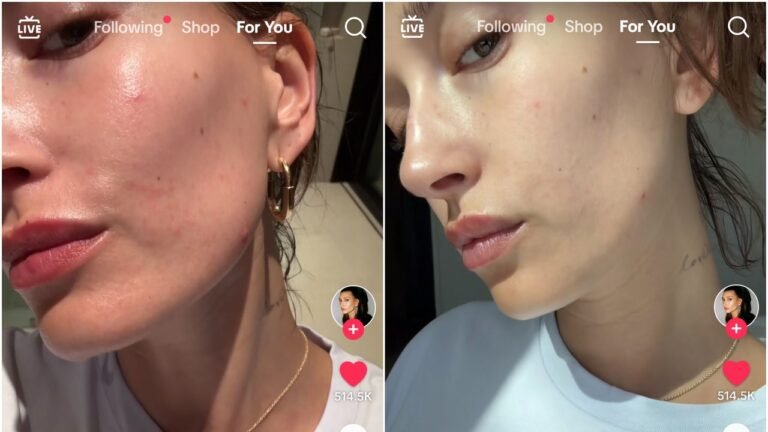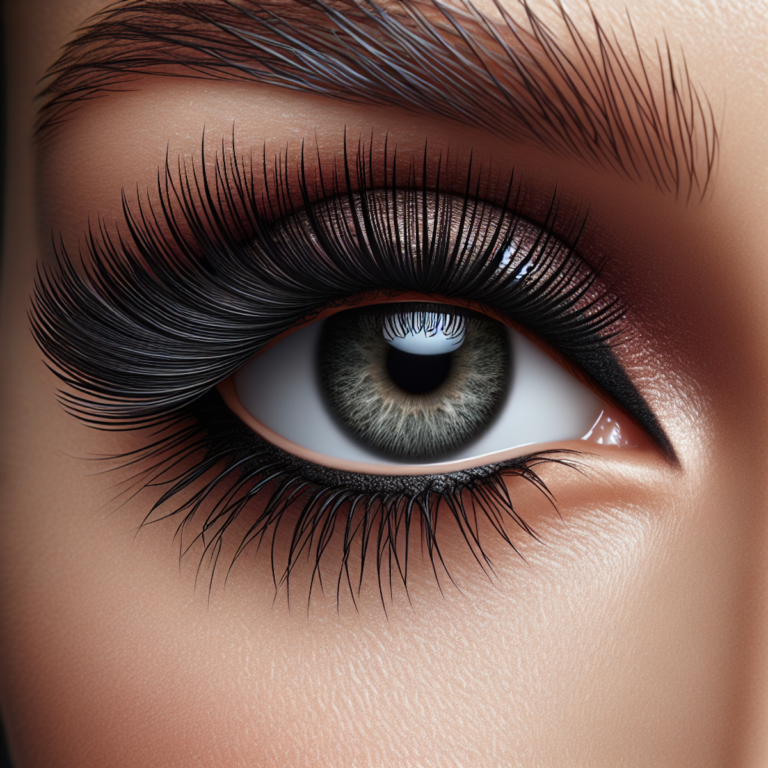How do you have clear skin

Introduction
Clear, radiant skin represents more than just physical beauty – it’s a reflection of your overall health and self-care practices. Your skin tells a story about your lifestyle, habits, and daily routines, making the pursuit of flawless skin a common goal for many.
Common skin concerns that can affect your complexion include:
- Acne and breakouts
- Uneven skin tone
- Enlarged pores
- Excessive oil production
- Dryness and flakiness
- Dark spots and hyperpigmentation
The path to achieving clear skin involves a combination of targeted approaches:
- Developing a consistent skincare routine
- Using appropriate products for your skin type
- Making mindful lifestyle choices
- Maintaining proper hygiene practices
- Managing stress levels effectively
You can transform your skin‘s appearance through both immediate actions and long-term strategies. While some results may be visible within days, lasting changes typically require dedication and patience. The key lies in understanding your unique skin type and needs, then building a comprehensive care routine that addresses specific concerns while promoting overall skin health.
This guide will walk you through proven methods to achieve and maintain the clear, spotless skin you desire, from basic daily practices to advanced skincare techniques.
Understanding Skin Types
Your path to flawless skin starts with understanding your unique skin type. Each skin type requires specific care and products to achieve that coveted clear, glowing complexion.
The 5 Main Skin Types:
- Normal Skin: Balanced oil production, small barely visible pores, even tone with no severe sensitivities.
- Oily Skin: Excess sebum production, enlarged pores, prone to blackheads and breakouts, shiny appearance throughout the day.
- Dry Skin: Tight feeling after cleansing, visible flaking or scaling, fine lines appear more pronounced, rough or patchy texture.
- Combination Skin: Oily T-zone (forehead, nose, chin), dry or normal cheeks, different pore sizes across the face, seasonal changes affect skin balance.
- Sensitive Skin: Reacts easily to products, prone to redness and irritation, may sting or burn with certain products, requires gentle fragrance-free formulations.
Identifying Your Skin Type
Watch your skin‘s behavior throughout the day. Does it become shiny by noon? Does it feel tight after washing? These signs help determine your skin type. A simple test: cleanse your face, wait an hour without applying products, then observe how your skin feels and looks.
Customizing Your Skincare
Each skin type demands specific ingredients:
- Oily skin benefits from salicylic acid and niacinamide
- Dry skin needs hyaluronic acid and ceramides
- Combination skin requires balanced formulations
- Sensitive skin thrives with calming ingredients like chamomile and aloe
Understanding your skin type helps you choose effective products and avoid ingredients that might trigger breakouts or irritation. This knowledge forms the foundation of your journey toward clear, flawless skin.
Building a Daily Skincare Routine
A consistent skincare routine creates the foundation for clear, glowing skin. Here’s your essential guide to building an effective daily regimen:
Morning Routine
- Gentle Cleansing: Start with lukewarm water and a mild cleanser suited to your skin type. Use gentle circular motions for 60 seconds to remove overnight buildup.
- Toning (Optional): Apply an alcohol-free toner to balance pH levels and prep skin for subsequent products.
- Treatment Products: Layer serums or treatments containing active ingredients:
- Vitamin C for brightness
- Niacinamide for oil control
- Hyaluronic acid for hydration
- Moisturize: Lock in hydration with a lightweight moisturizer, even if you have oily skin.
- Sunscreen: Apply broad-spectrum SPF 30 or higher as your final step.
Evening Routine
- Double Cleanse:
- First cleanse: Remove makeup with micellar water or cleansing oil
- Second cleanse: Use your regular cleanser to deep clean pores
- Exfoliate (2-3 times weekly):
- Chemical exfoliants: AHA/BHA for gentle dead skin removal
- Physical scrubs: Use light pressure to avoid irritation
- Treatment Products: Apply targeted treatments:
- Retinol for cell turnover
- Peptides for skin repair
- Acne treatments if needed
- Night Moisturizer: Use a richer formula to support skin repair while you sleep.
Pro Tips for Maximum Results
- Wait 30 seconds between applying each product
- Pat products into skin instead of rubbing
- Apply products from thinnest to thickest consistency
- Keep your routine consistent for at least 6 weeks to see results
- Adjust products based on seasonal changes and skin needs
Choosing the Right Products for Clear Skin
Selecting the right skincare and makeup products plays a crucial role in maintaining clear, healthy skin. Your product choices can make the difference between a glowing complexion and persistent breakouts.
Key Features to Look For:
- Non-comedogenic labels
- Oil-free formulations
- Fragrance-free options
- Hypoallergenic products
- Water-based foundations
Products to Avoid:
- Heavy oils (coconut, olive, almond)
- Thick creams
- Alcohol-based products
- Comedogenic ingredients
- Harsh chemical preservatives
Essential Ingredients for Clear Skin:
- Salicylic acid for unclogging pores
- Niacinamide for oil control
- Hyaluronic acid for hydration
- Vitamin C for brightening
- Benzoyl peroxide for acne treatment
Reading product labels becomes your best defense against skin issues. Look for terms like “non-comedogenic” or “won’t clog pores” on packaging. These products are specifically formulated to prevent pore blockages that lead to breakouts.
For makeup, opt for mineral-based products that allow your skin to breathe. BB creams and tinted moisturizers provide lighter coverage while maintaining skin health. When choosing foundation, stick to water-based formulas rather than oil-based alternatives.
Korean skincare products often emphasize gentle, natural ingredients. Their approach focuses on lightweight, layerable products that work together to create clear, glowing skin. Consider incorporating essence, ampoules, or serums into your routine – these concentrated formulations deliver powerful ingredients without heavy textures.
Remember to patch test new products on a small area of skin for 24-48 hours before full application. This practice helps identify potential allergic reactions or sensitivity issues before they become major problems.
Your skin’s needs may change with seasons, hormones, or stress levels. Keep track of how your skin responds to different products and adjust your selections accordingly. A product that works perfectly in winter might prove too heavy during summer months.
Lifestyle Factors That Contribute to Clear Skin
Your daily habits play a crucial role in achieving that coveted clear, smooth skin. A balanced diet rich in specific nutrients directly impacts your skin’s health and appearance.
Essential Nutrients for Clear Skin:
- Vitamin C: Found in citrus fruits and berries
- Omega-3 fatty acids: Present in salmon and chia seeds
- Zinc: Available in pumpkin seeds and lean meats
- Vitamin E: Abundant in almonds and spinach
- Antioxidants: Found in green tea and dark chocolate
Hydration Guidelines for Glowing Skin:
- Drink 8-10 glasses of water daily
- Monitor urine color (pale yellow indicates proper hydration)
- Include water-rich foods like cucumber and watermelon
- Limit dehydrating beverages like alcohol and caffeine
Sleep Quality Impact:
- Aim for 7-9 hours of uninterrupted sleep
- Use silk pillowcases to reduce friction
- Keep bedroom temperature cool (65-68°F)
- Maintain consistent sleep schedule
Exercise Benefits for Skin:
- Increases blood circulation
- Promotes natural detoxification through sweating
- Reduces cortisol levels
- Enhances oxygen delivery to skin cells
Regular physical activity combined with proper nutrition creates an internal environment that supports clear, healthy skin. Your body’s largest organ responds positively to these lifestyle modifications, reflecting your internal health through its external appearance.
Hygiene Practices for Clear Skin Maintenance
Your daily hygiene practices play a crucial role in maintaining clear, smooth skin. A clean environment creates the foundation for a flawless complexion.
Essential Bedding Care:
- Change pillowcases every 2-3 days to prevent bacteria buildup
- Use silk or satin pillowcases to reduce friction and skin irritation
- Wash bedsheets weekly in hot water to eliminate skin-damaging bacteria
Makeup Tool Maintenance:
- Clean makeup brushes weekly with gentle soap
- Replace makeup sponges monthly
- Sanitize makeup containers and lids regularly
- Store tools in a clean, dry place
Daily Habits for Clear Skin:
- Wash hands before touching your face
- Use clean towels for face drying
- Disinfect your phone screen daily
- Keep hair tied back during sleep
- Remove makeup before workouts
Professional Tips:
- Deep clean makeup brushes monthly with specialized cleaners
- Use UV sterilizers for makeup tools
- Keep separate towels for face and body
- Replace old makeup products every 3-6 months
- Clean makeup bags and storage containers monthly
These hygiene practices create an environment where your skin can thrive. Maintaining clean tools and surfaces reduces bacteria transfer to your face, preventing unexpected breakouts and supporting your journey to naturally clear skin.
Managing Stress for Better Skin Health
Your skin reflects your mental state. Research shows stress triggers hormonal changes that increase oil production, leading to clogged pores and acne breakouts. High cortisol levels during stressful periods can also slow down skin healing and worsen existing skin conditions.
Effective Stress Management Activities for Clear Skin:
- Yoga – Practice gentle poses like child’s pose and cat-cow stretches to release physical tension
- Deep Breathing – Try the 4-7-8 breathing technique: inhale for 4 counts, hold for 7, exhale for 8
- Regular Exercise – 30 minutes of moderate activity releases endorphins and reduces stress hormones
- Sound Therapy – Listen to calming music or nature sounds during your skincare routine
- Mindfulness – Take 5-10 minutes daily to practice meditation or guided visualization
Quick Stress-Relief Tips:
- Take short breaks throughout your day
- Create a relaxing bedtime ritual
- Set boundaries with work and social media
- Practice progressive muscle relaxation
- Spend time in nature
Incorporating these stress management techniques helps maintain hormonal balance and supports your skin’s natural healing processes. Many people notice significant improvements in their skin’s appearance within weeks of implementing regular stress-reduction practices.
Remember to track your stress levels alongside your skin’s condition to identify patterns and adjust your management strategies accordingly.
Avoiding Harmful Habits That Sabotage Clear Skin
Your daily habits play a crucial role in maintaining clear, healthy skin. Breaking these common harmful practices can dramatically improve your skin’s appearance:
1. Picking at Pimples
- Creates open wounds susceptible to infection
- Leads to permanent scarring and dark spots
- Spreads bacteria to other areas of your face
- Prolongs healing time of existing breakouts
2. Smoking’s Impact on Skin Health
- Reduces blood flow to skin cells
- Decreases collagen production by 40%
- Accelerates premature aging and wrinkle formation
- Creates uneven skin tone and texture
- Delays wound healing process
3. Additional Skin-Damaging Habits to Break
- Sleeping with makeup on
- Using dirty phone screens against your face
- Taking hot showers that strip natural oils
- Excessive alcohol consumption
- Skipping sunscreen application
Breaking these habits requires conscious effort and dedication. Replace harmful behaviors with positive alternatives:
- Use pimple patches instead of picking
- Practice deep breathing when tempted to touch your face
- Keep hands busy with stress balls or fidget toys
- Clean your phone screen daily with antibacterial wipes
- Set reminders to remove makeup before bed
Your skin naturally regenerates during sleep cycles. Supporting this process by eliminating destructive habits allows your skin to heal and maintain its natural clarity.
Protecting Your Skin from Sun Damage
Sun protection is an essential step in achieving flawless skin. UV rays can penetrate deep into your skin, causing premature aging, dark spots, and potential damage that can hinder your clear skin goals.
Essential Sun Protection Strategies:
- Apply a broad-spectrum sunscreen with SPF 30 or higher daily
- Reapply sunscreen every 2 hours, especially during outdoor activities
- Use physical blockers like zinc oxide for sensitive skin
- Wear protective clothing, including wide-brimmed hats and sunglasses
Pro Application Tips:
- Apply sunscreen 15-20 minutes before sun exposure
- Use a quarter-sized amount for your face
- Don’t forget often-missed areas like ears, neck, and hands
- Layer sunscreen as the last step in your morning skincare routine
Your choice of sunscreen impacts your skin’s clarity. Look for non-comedogenic formulas labeled “oil-free” or “lightweight” to prevent clogged pores. Many Korean and Japanese sunscreens offer elegant textures that feel invisible on skin while providing superior protection.
For an airbrushed appearance, consider tinted sunscreens that provide both protection and subtle coverage. These products can help even out your skin tone while safeguarding your complexion from harmful UV rays.
Remember that consistent sun protection helps maintain results from other skincare treatments and prevents hyperpigmentation from acne scars.
Seeking Professional Help When Needed
Knowing when to get professional help is an important step in your journey to clear skin. Here are some signs that indicate it’s time to see a dermatologist:
Signs You Should See a Dermatologist:
- Persistent acne that doesn’t respond to over-the-counter treatments
- Deep, painful cysts or nodules
- Significant scarring or dark patches on the skin
- Sudden onset of severe breakouts
- Skin conditions affecting your daily life or confidence
Dermatologists offer specialized treatments beyond standard skincare routines. Here’s what you can expect during professional treatment:
Common Professional Treatments:
- Prescription Medications
- Topical retinoids
- Antibiotics
- Hormone therapy
- Isotretinoin for severe cases
- In-Office Procedures
- Chemical peels
- Light therapy
- Laser treatments
- Extractions
- Microdermabrasion
Your dermatologist will create a personalized treatment plan based on:
- Your specific skin type
- Severity of skin issues
- Medical history
- Lifestyle factors
- Previous treatment responses
Professional guidance provides access to stronger, medical-grade products and treatments unavailable over the counter. Dermatologists can also identify underlying health conditions contributing to skin problems, ensuring comprehensive treatment approaches.
Regular check-ups with your dermatologist help track progress and adjust treatments as needed. Many patients see significant improvement within 3-6 months of professional treatment, though results vary based on individual cases and chosen treatment methods.
Exploring Natural Remedies for Clear Skin at Home
Natural ingredients from your kitchen can create powerful skincare solutions. Here are proven DIY remedies for achieving clear, glowing skin:
1. Honey Face Mask
- Raw honey contains natural antibacterial properties
- Apply a thin layer directly to clean skin
- Leave for 15-20 minutes before rinsing
- Use 2-3 times weekly for best results
2. Turmeric Paste
- Mix 1 tsp turmeric powder with plain yogurt
- Add a few drops of honey
- Apply for 10 minutes
- Rinse thoroughly to avoid yellow staining
3. Green Tea Ice Cubes
- Brew strong green tea and freeze in ice cube trays
- Gently rub ice cube on face after cleansing
- Reduces inflammation and tightens pores
- Use daily for antioxidant benefits
Safety Guidelines for DIY Skincare:
- Perform patch tests before applying new ingredients
- Never use citrus fruits directly on skin – they cause photosensitivity
- Store homemade products in clean containers
- Use within 3-5 days to prevent bacterial growth
- Discontinue if irritation occurs
4. Gentle Exfoliating Scrub Recipe
- 2 tablespoons ground oatmeal
- 1 tablespoon honey
- 1 teaspoon plain yogurt
Mix ingredients into a paste. Massage gently on damp skin using circular motions. Rinse after 5 minutes. Use weekly for smooth, clear skin.
Warning: Some natural ingredients can cause reactions in sensitive skin. Start with small amounts and observe your skin’s response. If you experience redness, itching, or burning, wash off immediately and avoid that ingredient in future applications.
FAQs (Frequently Asked Questions)
What are the common skin types and how do they affect my skincare routine?
There are four main skin types: oily, dry, combination, and normal. Understanding your skin type is crucial because it influences the products you should use and the skincare routine you should follow to achieve clear and flawless skin.
What steps should I include in my daily skincare routine for clear skin?
A basic daily skincare routine includes cleansing to remove dirt and impurities, moisturizing to keep your skin hydrated, and exfoliation to remove dead skin cells. Following these steps consistently can help you achieve clear and smooth skin.
How can I choose the right products for my skincare routine?
When selecting skincare products, look for non-comedogenic options that won’t clog your pores. Avoid heavy oils and opt for lightweight formulations that suit your specific skin type to prevent breakouts.
What lifestyle factors contribute to maintaining clear skin?
A healthy diet rich in fruits and vegetables, proper hydration, regular exercise, and adequate sleep all play a significant role in maintaining clear skin. These factors help promote overall skin health and prevent issues like acne.
How does stress impact my skin health?
Stress can trigger acne flare-ups due to hormonal changes in the body. Engaging in stress management techniques such as yoga, meditation, or regular physical activity can help mitigate these effects and improve your overall skin health.
When should I consider seeking professional help for my skin issues?
If over-the-counter treatments are not effective or if you experience persistent or severe skin problems, it may be time to consult a dermatologist. They can provide tailored treatment options based on your specific needs.










